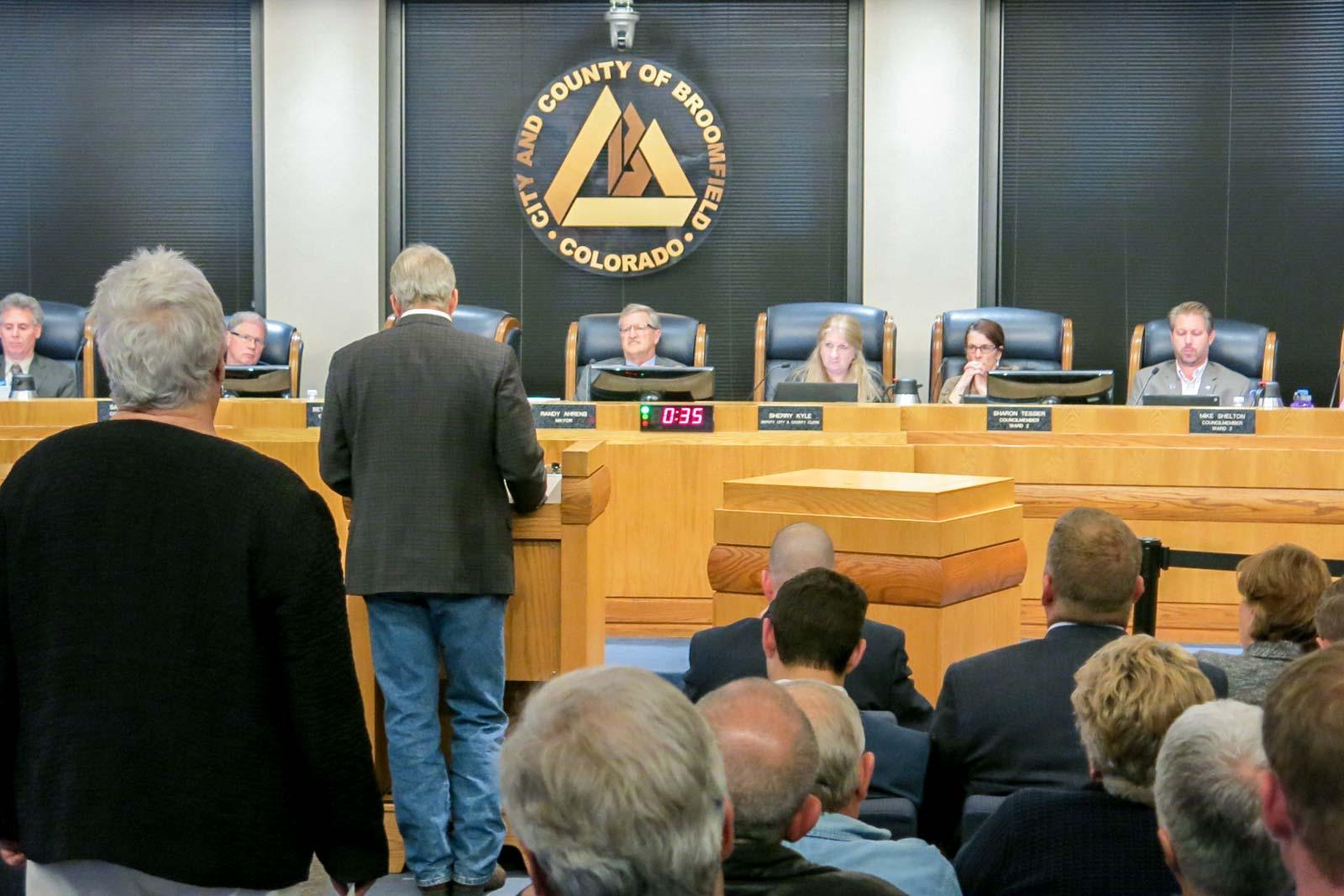

At a packed, contentious and long running meeting Tuesday night, Broomfield city council approved a controversial new drilling plan inside city and county limits.
“If we don’t do this it may never get passed” said Council Member David Beacom, referring to a November election will likely change the membership of city council.
The vote came as cities across the Front Range are searching for more ways to control drilling. Depending on whom you talk to, the Broomfield plan was seen as a gold standard or a misguided plan in need to revisions.
Tonight's mtg off to rough start. Citizen comment is calling out staff, city council "You are doing everything you can to not do your job" pic.twitter.com/df76jjE9Q3
“I think you folks should be commended for your courage. For your ability to negotiate something that’s going to be the standard. Not only for the state but I believe for the country,” said Bradley Beck, who traveled from his home town of Erie to speak during the public comment period at the Broomfield city council meeting.
During nearly four hours of public testimony, many residents scrutinized how the Broomfield plan handles royalties and forced pooling. Meantime, well location became the most contentious issue of the night.

“If you think this is a shining example of how to approve oil and gas operations in Colorado; You have blinders on,” said Megan Townsend, who recently purchase a home in nearby Adams County.
Many Adams County residents cried fowl after a change in September relocated some well pads closer to the border between Broomfield and Adams. Townsend’s home would be one of the closest at about 1,000 feet from the well pad. That’s greater than the minimum statewide setback distance of 500 feet.
Extraction Oil and Gas: "We have negotiated every word of this document and we've gone as far as we can." #broomfield #OilAndGas
Negotiations in Broomfield were shaped by a heavily involved citizen task force. The city and county negotiated a long list of items with Extraction Oil & Gas that go beyond what the state requires:
- Noise controls and use of electronic drilling rigs
- Collection of air, soil and water samples
- Construction of a pipeline to reduce truck traffic
- A ban on 17 of the 19 chemicals used in the hydraulic fracturing process.
Emotions over drilling near homes have run high after inspectors linked an improperly abandoned flowline and the resulting explosion in Firestone to a nearby Anadarko well last April. As residents seek drilling controls, cities are limited in what they can do because of a Colorado Supreme Court ruling that struck down drilling bans.
Broomfield City Council Member Kevin Kreeger, who opposed the agreement, said there are reasons for people to be concerned. “There are explosions and blowouts regularly, there have been several high profile ones this year.”
Thornton, Lafayette and Erie have all passed stricter local control measures than what the state requires. Colorado’s oil and gas industry recently sued Thornton arguing their approach went too far.
In the background of Broomfield’s oil and gas debate is Ballot Question 301, which seeks to put health and safety limits on drilling. During the Tuesday meeting, City and County Attorney Bill Tuthill said that if 301 passed this November he did not see it impacting Broomfield’s agreement with Extraction Oil and Gas.
Read More: Post-Firestone, Front Range Cities Seek Oil And Gas Local Control 2.0









